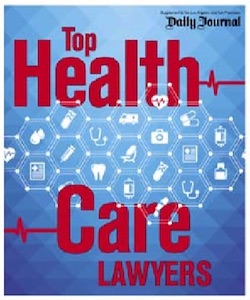Heart disease knows no race or gender. It is the leading cause of death in the United States for both men and women, and it accounts for 22 to 24 percent of deaths in African American, white, and Asian Americans. Each year, heart disease causes about 25 percent of deaths through heart attacks, coronary artery disease, congenital heart defects, and aortic aneurysms.
While heart attacks, especially in women, can come on suddenly, several medical precursors may present themselves. Early intervention and treatment can help reduce your risk of suffering cardiac arrest. While decreasing stress, exercising, improving diet, and focusing on your health can reduce your risk of heart attack; many working Americans have neither the time nor finances to alter their work schedules.
If you’re in danger of suffering from a heart attack or you were diagnosed with another type of heart disease, you may qualify for individual or group long-term disability benefits. Even if you’re waiting for a heart surgery or a transplant, you can apply for individual or group long-term disability benefits to assist you during this waiting period. Individual or group long-term disability benefits can help if you must live away from home to remain near the transplant hospital.
Unfortunately, you may face a bad-faith delay, denial, or termination of individual or group long-term disability benefits if you have yet to suffer from a potentially disabling event such as a heart attack. Individual and group long-term disability insurers are looking for clinical documentation of a disabling illness or injury that prevents you now, from completing the essential duties of your occupation, or in some policies the occupation by which you were trained, educated, or suited.
Heart conditions can disable you even if you haven’t suffered a heart attack. Consult an experienced individual or top-rated group long-term disability attorney at DarrasLaw. When it comes to fighting for the legal right to individual or group long-term disability insurance, no other lawyer or firm in the country has more litigation and claim experience than Frank N. Darras, the founding partner at DarrasLaw. To schedule your free disability policy analysis and free claim consultation, call DarrasLaw today at 800-898-7299 or contact us online.
Signs and Symptoms of Cardiac Disability
Because heart attacks can strike suddenly and often kill their victims, recognizing the signs and symptoms of a cardiac disorder can save your life. The major warning signs of an impending heart attack include:
- Chest pain
- Chest discomfort
- Nausea
- Cold sweats
- Shortness of breath
- Lightheadedness
- Upper body pain
- Arm pain
- Back and neck pain
- Jaw pain
- Pain and discomfort in your stomach
Women may not experience as many symptoms as men, so women who experience some of the above symptoms in combination with the following risk factors should seek medical attention:
- Obesity
- Physical inactivity
- High fat, high cholesterol diet
- Diabetes
- Alcohol abuse
Cardiac disease is especially prevalent in the mid-eastern United States, including Alabama, Mississippi, Louisiana, Kentucky, Tennessee, and Oklahoma.
Genetic and Organic Heart Disorders
While acquired cardiac disabilities are common, many cardiac conditions are genetic. Some claimants are born with serious heart defects, while others may have suffered heart damage in childhood from scarlet fever. Because your heart never gets a break or any rest, any damage to your cardiac muscle and intersecting arteries can leave a major impact on your overall health.
Common cardiac diseases and conditions include:
- Cardiac aneurysm: These aneurysms normally occur in your aorta, the main blood vessel that pumps blood from your heart to your body. An aneurysm occurs when the wall of your artery weakens and tears, causing major bleeding. Genetic disorders may cause the weakening of blood vessel walls, resulting in aneurysms. While you may experience similar symptoms to a heart attack during an aneurysm, you’ll typically feel sudden, sharp pain in your upper back radiating downward and difficulty breathing. You’ll need immediate, emergency surgery if you suffer from an aortic aneurysm, and a long recovery time—so don’t feel afraid to take advantage of your individual or group long-term disability benefits.
- Heart valve disorders: If you suffer from a heart valve disorder, one or more of the four valves passing blood through your heart may be too narrow or is leaking blood backward through the valve. This restricts blood flow to the rest of your body, and can cause chronic heart failure. When blood flow reduces, your body first restricts blood to your limbs, so if you experience swelling in your ankles and feet along with heart pain, you may have an issue with your heart valve or valves.
- Mitral valve prolapse: This heart valve disorder specifically afflicts your mitral valve, which separates the left chambers of your heart. It’s only supposed to let blood flow down from your left atrium, but a prolapse causes blood to leak backward into your left atrium. Serious cases of mitral valve prolapse can result in fatigue, chest pain, lightheadedness, and difficulty breathing. Another genetic disorder, such as muscular dystrophy, may contribute to mitral valve prolapse as well.
- Marfan syndrome: This rare genetic syndrome essentially causes your body to produce a protein that enlarges your aorta, which may cause the vessel to tear, resulting in an aneurysm. If your parent has this condition, you have a 50 percent chance of getting this life-threatening syndrome.
- Raynaud’s disease: This circulatory disorder doesn’t always result in a disability, but it might. It typically causes coldness and numbness in your fingers and toes because your blood vessels constrict, reducing blood flow. However, secondary Raynaud’s is typically caused by an underlying condition, such as poor circulation from a weak heart.
- Congenital heart disease: This disease results from a physical defect in your heart, which you may have had since birth. Whether the defect affects your valves, heart wall, or arteries, it’s classified as congenital heart disease. Congenital heart defects can block or reverse blood flow to your heart and body, resulting in extremely dangerous health conditions. Some patients may require immediate heart surgeries or heart transplants. Even if you have a preexisting condition, you might be able to obtain individual or group long-term disability benefits, depending on your policy language and how long you have been insured.
- Atrial fibrillation (AFib): AFib means you have an irregular heartbeat, which can lead to blood clots, heart attacks, or strokes. While many people experience AFib episodes, such as palpitations, if you suffer from constant symptoms, get monitored for atrial fibrillation or a related cardiac illness.
- Heart transplants: While a heart transplant can save your life, transplant life can pose enormous difficulties. You’ll need to take immune suppressants to prevent your body from attacking your donor heart, which can increase your risk of illness and infection. You’ll likely struggle with fatigue, and many recipients need another transplant within a decade.
- Postural Orthostatic Tachycardia Syndrome (POTS): This condition restricts blood flow, causing a rapid heartbeat. In many cases, you cannot stabilize your blood pressure, which can cause lightheadedness and fainting. Many people with this condition need to lie down to alleviate unexpected symptoms, which can naturally disrupt your ability to perform the essential duties of your occupation.
- Sinus bradycardia: This diagnosis stems from an unusually slow heartbeat. Sometimes this is healthy—if you’re an athlete, for example. However, if your slow heart rate is caused by a defect in your heart’s natural pacemaker, this can result in weakness and fainting.
Most claimants know they have congenital heart defects or genetic disorders before applying for individual or group long-term disability benefits. In such cases, your individual or group long-term disability insurer may wrongfully delay, deny, or terminate your coverage because of a preexisting condition. However, you can fight this.
Acquired Heart Conditions
While genetics often plays a role in heart attacks, many cardiac conditions develop with time. If you don’t focus on wellness visits, you may find you have one of the following heart conditions:
- Blood clots: These gelatinous masses of coagulated blood travel through your body. If the clot gets too big or gets stuck, it can result in loss of blood flow and extreme pain. If the clot blocks the blood vessels in your heart, this will lead to an immediate heart attack.
- Ischemic heart disease (coronary artery disease): This is caused by “fatty plaque” that builds up on the walls of the arteries leading to and from your heart. This causes the blood vessels to narrow, resulting in fatigue. When plaque blocks the blood vessels, you’ll experience a heart attack. This is one of the most common reasons for heart attacks.
- Peripheral arterial disease: This disease is a precursor to many heart attacks. Similar to ischemic heart disease, it develops when plaque builds up in your cardiac arteries, reducing or preventing blood flow to the rest of your body. If plaque reduces blood flow to your brain or limbs, it may result in amputation of the limb or brain damage.
- High cholesterol: You can’t generally get individual or group long-term disability benefits for elevated cholesterol alone. This condition, however, causes the plaque build up that leads to disabling conditions like coronary artery disease, peripheral arterial disease, and heart attacks.
- Syncope/fainting: This occurs when your blood pressure is too low. When your heart is not pumping enough blood, your brain may not receive sufficient oxygen. While dehydration or getting up too quickly can cause fainting, this can also indicate a serious underlying disorder such as bradycardia or tachycardia.
- High blood pressure (hypertension): Many claimants strongly believe they generally cannot claim individual or group long-term disability benefits for high-blood pressure alone, which isn’t true. Uncontrolled high blood pressure can often take months to arrest, resulting in valid total and partial disability claims.
Many heart disorders are difficult to diagnose. You or even your treating physician may write off symptoms as something else. For example, you may think heart pain is acid reflux, tooth pain is a cavity, and your high blood pressure comes from stress. Unfortunately, many Americans don’t know they have heart disease until it’s too late. Our award-winning long-term individual disability lawyers and nationally renowned ERISA attorneys can fight for your individual or group long-term disability benefits before your heart suffers severe damage. Most clients, however, need immediate help after an unexpected heart attack, stroke, or serious problems.
Recovering From a Heart Attack
While wellness and healthy lifestyle choices can prevent some heart conditions, nobody can plan for a heart attack. Typically, you’ll need immediate emergency treatment and/or surgery after or during the attack.
Heart surgeries typically consist of removing the plaque buildup and preventing future attacks. During an angioplasty, surgeons will place a balloon in the blocked artery to hold it open. Surgeons may also put in a stent to help prevent future heart attacks and to keep the artery open and blood flowing freely.
Severe blockage may call for heart bypass surgery. During this open-heart surgery, your surgeon will take arteries from another part of your body and attach them to your heart, bypassing the blocked arteries. A double, triple, or quadruple bypass means multiple clogged arteries and major surgery.
In situations where patients are not stable enough for surgery, surgeons may perform a transmyocardial revascularization (TMR), placing small holes in your heart with a laser. This helps relieve pain, but it will not treat the underlying heart disorder.
If an angioplasty can treat your heart condition before a heart attack, you may recover in a few days or a few weeks. With a successful bypass, you may need months before you can return to work. However, heart damage during the attack may result in brain damage or serious cognitive issues.
Some patients may need multiple surgeries, including heart valve replacements or heart transplants. If you need a transplant, it will generally take about six months before you feel relatively normal, but this comes with other complications that may prevent you from returning to work.
Contact America’s Top-Rated Cardiac Disability Lawyers Today
If you suffer from heart disease, even if you didn’t have a heart attack, call America’s top-rated individual and award-winning group ERISA long-term disability lawyers at DarrasLaw now. The nation’s top disability attorney, Frank N. Darras, and his firms have recovered nearly $1 billion in wrongfully delayed, denied, and terminated insurance benefits for our clients. To schedule your completely free disability policy analysis and free claim consultation, call us today at 800-898-7299 or contact us online.













